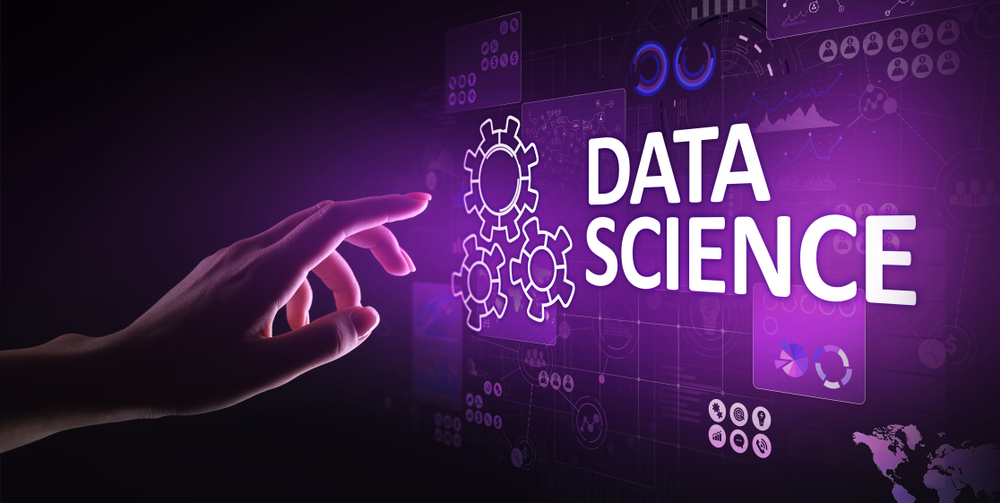- Why should you learn data science?
- Why Choose Great Learning for Your Data Science Journey?
- Types of Data Science Courses Offered
- Data Science Learning Path: From Beginner to Expert
- Post-Graduate Program in Data Science and Business Analytics (12-months)
- Free Data Science Courses
- Conclusion
- Frequently Asked Questions (FAQs)
In the era of artificial intelligence and machine learning, learning data science opens up endless industry opportunities. Whether it’s finance, healthcare, or marketing, working with data and deriving insights is an invaluable skill.
But how do you start? The right platform can make all the difference in mastering this complex subject. We at India’s leading EdTech platform, Great Learning, offer a variety of data science courses designed to help learners at all levels.
In this blog, we’ll explore how you can get started with the Great Learning data science course and why thousands of students and professionals across the country trust it.
Why should you learn data science?
Learning data science is essential in today’s data-driven world, as highlighted by a recent report from Precedence Research, which predicts a remarkable 16.43% CAGR, leading to a market value of $378.7 billion by 2030.
This growing demand reflects the increasing need for skilled professionals who can transform vast amounts of raw data into actionable insights.
Data science merges mathematics, statistics, and technology to analyze both structured and unstructured data, enabling businesses across various industries to make informed decisions, forecast trends, and enhance their services.
By mastering data science, you position yourself at the forefront of innovation and opportunity in a rapidly evolving job market.
Check out What is Data Science to learn in detail about Data Science.
Why Choose Great Learning for Your Data Science Journey?
For over 11 years, Great Learning has transformed the careers of professionals worldwide. With over 5 million hours of learning delivered in 17 countries, we empower learners to succeed in today’s data-driven landscape.
What Makes Great Learning a Reliable Option?
- High Enrollment: Over 50 batches with 5,000+ successful graduates.
- Top Ranking: Recognized as the #1 Analytics program in India for four consecutive years by Analytics India Magazine.
- Expert Faculty: Involvement of 300+ industry experts and 25+ top data science educators.
- Career Success: Facilitated 2,500+ career transitions, with 90% of alumni recommending the program.
Types of Data Science Courses Offered
Online Data Science Courses
If you’re looking for flexibility, Great Learning’s Online Data Science Course allows you to learn at your own place. The courses cover everything from beginner-level concepts to advanced topics like machine learning and big data technologies. This is an ideal option for working professionals who want to study while managing their work commitments.
Here are some courses that will significantly enhance your data science career.
1. Master of Data Science (Global) Program
Some key highlights of program:
- Comprehensive Duration: Complete a 12-month Postgraduate program followed by a 12-month Master’s degree.
- Expert Instruction: Attend live virtual classes taught by esteemed faculty from Deakin University.
- Global Recognition: Earn Deakin alumni credentials and benefit from a world-class curriculum.
- Affordable Education: Enjoy the benefits of a top-tier program at just one-tenth of the cost of an on-campus program.
- Hands-On Experience: Gain practical exposure to over 15 programming languages and tools, including Python, SQL, and Tableau.
- Dual Certification: Receive certifications from two globally recognized universities.
- WES Recognized: The program is acknowledged by World Education Services, enhancing your qualification’s credibility.
2. MIT IDSS’s Data Science and Machine Learning Program
Some key highlights of program:
- Intensive Format: Engage in a 12-week online program designed for flexibility and efficiency.
- Expert-Led Content: Access recorded lectures from award-winning MIT faculty, providing insights from leaders in the field.
- Innovative Topics: Explore self-paced modules focused on ChatGPT and Generative AI, ensuring you’re up-to-date with cutting-edge technologies.
- Practical Learning: Complete three hands-on projects and analyze over 50 real-world case studies to solidify your understanding.
- Comprehensive Curriculum: Cover a wide range of topics in Data Science and Machine Learning.
- Exclusive Benefits: Enjoy discounts on current and future IDSS online courses.
- Recognized Certification: Earn a certificate from the MIT Schwarzman College of Computing and IDSS upon successful completion.
3. PG Program in Data Science and Engineering
Some key highlights of program:
- Structured Learning: Participate in 9 months of online sessions, complete with placement assistance to help you transition into the workforce.
- Expert Faculty: Learn from award-winning professors affiliated with a top-10 business school in India.
- Supportive Environment: Benefit from dedicated learning and career support, including doubt-clearing sessions.
- Practical Application: Analyze over 13 real-world case studies to apply theoretical concepts in practical scenarios.
- Career Preparation: Receive assistance with resume reviews, interview preparation sessions, and four or more mock interviews to boost your confidence.
- Postgraduate Certification: Earn a postgraduate certificate from Great Lakes, a recognized name in education.
Data Science Learning Path: From Beginner to Expert
Step 1: Beginner Level
1. Introduction to Analytics
Basics of Data Science and Analytics: Understand the fundamental concepts of data science, its importance, and how it impacts decision-making in various fields.
- Types of Analytics: Learn about the three main types of analytics:
Descriptive Analytics: Focuses on summarizing historical data to understand what has happened.
Predictive Analytics: Uses statistical models and machine learning techniques to identify the likelihood of future outcomes based on historical data.
Prescriptive Analytics: Provides recommendations for achieving desired outcomes using optimization and simulation algorithms.
- Data Types: Distinguish between structured data (organized, often in tables) and unstructured data (unorganized, such as text, images, or videos).
2. Database Management Systems
- Learn SQL: Start with the basics of Structured Query Language (SQL) to manipulate and query data:
- Basic Queries: Learn how to use SQL commands such as SELECT (retrieve data), INSERT (add data), UPDATE (modify data), and DELETE (remove data).
- Introduction to Relational Databases: Familiarize yourself with popular relational databases like PostgreSQL and MySQL, understand their architecture, and learn how to design basic schemas.
- NoSQL Basics: Get introduced to NoSQL databases like MongoDB, which handle unstructured data and provide flexibility in data modeling.
3. Data Visualization with Tableau
- Introduction to Tableau: Understand the role of data visualization and how Tableau creates visual representations of data.
- Create Basic Visualizations: Learn to build fundamental visualizations like bar charts and line graphs to communicate insights effectively.
- Simple Dashboards and Interactivity: Develop interactive dashboards to combine multiple visualizations, allowing users to explore data dynamically.
4. Python for Data Science
- Learn Python Basics: Start with Python programming fundamentals, focusing on variables, loops, and functions, which are essential for data manipulation.
- Intro to Data Libraries: Get acquainted with crucial Python libraries like:
- NumPy: For numerical operations and handling arrays.
- Pandas: For data manipulation and analysis, especially for structured data.
Step 2: Intermediate Level
1. Statistical Techniques for Data Professionals
- Descriptive Statistics: Learn to summarize data using measures like mean, median, and mode to understand the central tendency.
- Probability Distributions and Hypothesis Testing: Study various probability distributions (normal, binomial, etc.) and learn how to test hypotheses using statistical methods.
- Linear Regression, Correlation, ANOVA: Learn linear regression to model relationships between variables, understand correlation coefficients, and use ANOVA (Analysis of Variance) to compare means.
2. Machine Learning Essentials
- Supervised vs Unsupervised Learning: Understand the difference between these two primary types of machine learning:
Supervised Learning: Involves training models on labeled data (e.g., classification, regression).
Unsupervised Learning: Works with unlabeled data to find patterns or groupings (e.g., clustering).
- Standard Algorithms: Familiarize yourself with key algorithms:
Linear Regression: For predicting a continuous outcome.
Decision Trees: For making decisions based on data features.
K-Means: A clustering algorithm to group similar data points.
- Model Evaluation: Learn how to assess models’ performance using metrics such as accuracy, precision, recall, and F1-score.
3. Data Engineering Essentials
- Introduction to Big Data: Get an overview of big data technologies like Hadoop and Spark, which enable the efficient processing of large datasets.
- Data Pipelines: Understand the ETL process (Extract, Transform, Load) for managing data flow and cleaning it for analysis.
- Cloud Data Platforms: Explore the basics of popular cloud platforms for data storage and processing, such as AWS, Google Cloud Platform (GCP), and Azure.
Step 3: Expert Level
1. Building a Capstone Project
- End-to-End Data Science Project: Work on a comprehensive project encompassing all data science phases—from data collection and cleaning to modeling and visualization.
- Data Collection, Cleaning, Modeling, and Visualization: Apply skills learned to gather data, preprocess it, create predictive models, and visualize the results.
- Presentation and Documentation of Insights: Learn how to communicate findings through presentations and well-documented reports effectively.
2. Generative AI & Deep Learning
- Introduction to Generative AI and Neural Networks: Explore advanced topics like generative AI, which involves creating new data instances, and neural networks, a key component of deep learning.
- Solve NLP, Time Series, and Computer Vision Problems: Learn to apply deep learning techniques to various domains such as Natural Language Processing (NLP), time series forecasting, and image recognition.
- Use Frameworks like TensorFlow or PyTorch: Gain hands-on experience with popular deep learning frameworks to build and train neural network models.
Final Step: Capstone Project
- Apply All Skills Learned in a Real-World Project: Then finally demonstrate all your acquired knowledge and skills by taking a data science project from inception to deployment, showcasing your ability to handle real-world data challenges.
Want to get started? You can enroll in our
Post-Graduate Program in Data Science and Business Analytics (12-months)
It is an all-in-one solution, combining data science, machine learning, and business analytics into a single package. With hands-on projects, expert mentorship, and industry-recognized certification, you’ll gain the practical skills and academic credentials needed for success.
Key highlights of the program:
- 12-month program with flexible Learning
- Hands-on exposure to 15+ Languages and Tools (Python SQL, Tableau, and More)
- Case Studies with Real-World Datasets (Netflix, Uber, Spotify and more)
- 11 hands-on projects and 1 Capstone Project
- 40+ case studies across different industry verticals
- 40+ quizzes (25 graded) for reinforcement of conceptual and practical understanding
Free Data Science Courses
Great Learning also offers a variety of free courses to help learners get started with data science:
- Data Science Foundations: An introductory course that covers essential concepts like data types and basic algorithms.
- Data Preprocessing Course: You willl learn how to clean and prepare data for analysis, a crucial first step in any data science project.
- Behavioral Interview Questions: A guide to preparing for the soft-skill aspects of interviews for data science roles.
These free courses provide a great way to build your knowledge before diving into a full-length program.
Conclusion
Mastering data science is a journey, but with the right resources, anyone can learn and excel. Great Learning offers a range of courses tailored to different skill levels, whether you’re a beginner or an experienced professional.
Their focus on hands-on Learning, mentorship, and career support makes them one of India’s most trusted platforms for data science education. If you’re serious about making a career in data science, take the next step and explore Great Learning’s Data Science Courses today.
Frequently Asked Questions (FAQs)
A: Great Learning’s data science courses suit professionals from technical backgrounds in engineering, mathematics, or business analytics. However, beginners can start with their foundational courses, even without prior experience.
A: It is a 12 months Program. The course is designed for flexibility, allowing students to learn at their own pace.
A: While coding experience can be helpful, it’s not mandatory for beginners. Great Learning offers courses like Data Science Foundations, which covers the basics of programming and data handling.
A: Upon completion, you can apply for roles such as Data Scientist, Data Analyst, Machine Learning Engineer, and Business Analyst, among others.
A: Yes, Great Learning provides placement assistance, including resume-building, mock interviews, and access to job postings. They also have a strong network of alumni and mentors to support your career journey.









